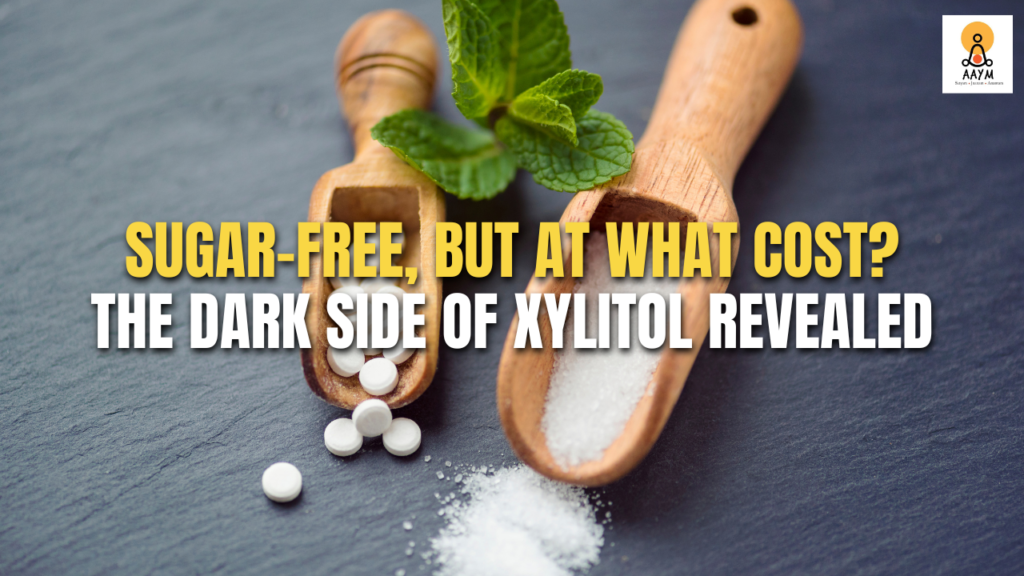
In a comprehensive study spearheaded by the Cleveland Clinic, new evidence has come to light linking the consumption of xylitol, a popular zero-calorie sugar substitute, to an increased risk of cardiovascular events such as heart attacks and strokes. This significant finding, published in the European Heart Journal, highlights the need for further scrutiny of the health implications associated with sugar alcohols and artificial sweeteners, which have seen a substantial rise in use over the past decade.
Study Overview and Key Findings
The research team, led by Stanley Hazen, M.D., Ph.D., Chair of Cardiovascular and Metabolic Sciences at the Cleveland Clinic’s Lerner Research Institute, conducted an extensive study involving over 3,000 patients across the United States and Europe. The analysis revealed a significant association between high levels of circulating xylitol and an elevated three-year risk of major adverse cardiovascular events (MACE).
Key findings from the study include:
- Increased Cardiovascular Risk: Patients with the highest plasma levels of xylitol were significantly more likely to experience cardiovascular events. Specifically, the top third of participants with the highest xylitol levels had a notably increased risk.
- Platelet Reactivity: Preclinical testing demonstrated that xylitol exposure resulted in heightened platelet activity and an increased risk of thrombosis. This finding was consistent across various models, including human platelet-rich plasma and animal studies.
- In Vivo Thrombosis Formation: Xylitol consumption led to an increase in platelet responsiveness and clot formation, as evidenced by intervention studies where subjects ingested xylitol-sweetened beverages.
Mechanistic Insights and Clinical Implications
Xylitol, a sugar alcohol found in many sugar-free products such as candies, gums, baked goods, and oral hygiene products like toothpaste, has been widely regarded as a healthier alternative to traditional sugar. However, the Cleveland Clinic study presents compelling evidence that challenges this perception.
Using advanced techniques like untargeted metabolomics and stable isotope dilution liquid chromatography tandem mass spectrometry (LC-MS/MS), the researchers quantified xylitol levels in the plasma and explored their impact on cardiovascular health. Elevated xylitol levels were shown to significantly enhance platelet reactivity and the potential for thrombus (clot) formation, both in laboratory settings and in animal models. Furthermore, human intervention studies demonstrated that typical dietary consumption of xylitol could substantially increase platelet activity, reinforcing its prothrombotic nature.
Broader Context and Recommendations
This research follows similar findings from Dr. Hazen’s team, which previously identified a link between erythritol, another sugar alcohol, and cardiovascular risk. With the growing prevalence of these sugar substitutes in processed foods marketed for their health benefits, particularly in managing obesity and diabetes, it is crucial to reassess their safety.
Dr. Hazen emphasized the importance of ongoing research to better understand the long-term cardiovascular effects of sugar alcohols and artificial sweeteners. He advises consumers to exercise caution with products containing high levels of xylitol and to consult healthcare professionals for personalized dietary guidance.
Major Side Effects of Xylitol
The study sheds light on several significant side effects associated with xylitol consumption, including:
- Increased Risk of Cardiovascular Events: Elevated xylitol levels in the bloodstream are linked to a higher incidence of heart attacks and strokes.
- Enhanced Platelet Reactivity: Xylitol exposure can significantly increase platelet responsiveness, making blood more prone to clotting.
- Thrombosis Formation: The consumption of xylitol-sweetened products can lead to an increased risk of thrombus formation, potentially resulting in life-threatening cardiovascular conditions.
Research Locations and Methodology
The Cleveland Clinic conducted this research across multiple sites in the United States and Europe, utilizing a robust cohort of over 3,000 patients. The study employed a combination of clinical observation, preclinical models, and human intervention trials to thoroughly investigate the cardiovascular implications of xylitol.
Practical Considerations and Public Health Implications
Xylitol is commonly used in sugar-free candies, gums, baked goods, and oral care products due to its zero-calorie content and dental health benefits. However, the findings of this study call for a reevaluation of its widespread use, especially given the significant cardiovascular risks identified.
To minimize potential health risks, it is recommended that individuals limit their intake of products containing high levels of xylitol. Healthcare providers should also consider these findings when advising patients on dietary choices, particularly those with existing cardiovascular conditions.
Conclusion
The Cleveland Clinic study provides critical insights into the potential health risks associated with xylitol consumption. As the use of sugar alcohols continues to rise, it is essential to balance their perceived benefits with emerging evidence of adverse cardiovascular effects. Ongoing research and informed public health policies will be vital in ensuring that consumers can make safe and healthy dietary choices.
For more information and expert advice on nutrition and cardiovascular health, individuals are encouraged to consult with their doctors or certified dietitians. The Cleveland Clinic remains at the forefront of medical research, dedicated to uncovering the complexities of cardiovascular and metabolic diseases and advancing patient care through innovative scientific discoveries.
References:
- Witkowski, M., Nemet, I., Li, X. S., et al. (2024). “Xylitol is prothrombotic and associated with cardiovascular risk.” European Heart Journal. https://doi.org/10.1093/eurheartj/ehae244
- Cleveland Clinic. (2024). “Cleveland Clinic-Led Study Links Sugar Substitute to Increased Risk of Heart Attack and Stroke.”
